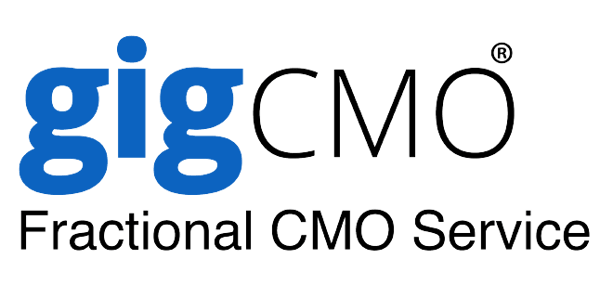
A recent study from the Academy of Marketing Science by Kimberly A Whitler found a disconnect between what Chief Marketing Officers (CMOs) are doing and what CEOs expect.
A broad cross-section of CEOs feel that their CMOs are not financially accountable and often seem ineffective. This is not a new problem, but it doesn't appear to be going away either. It can't be that every CMO out there isn't up to the task; instead, it's a question of defining the role and expectations for the modern business.
So, what can be done to align the objectives of the CEO and the CMO?
Understanding the CMO role
Historically, the CMO role has often been misunderstood, which might explain why the average tenure of a CMO at 100 of the top US ad spenders stood at 40 months in 2021 (41 the year before), and the median tenure was 25.5 months. It makes them the most short-lived role in the C-suite. To our mind, this has always been linked to three things:
- A lack of clarity as to the CMO's function
- A lack of direction from the board about the expectations of the CMO role from the start
- The CEO and CMO speak a different 'language'
When we talk about the role of the CMO, we mean someone who is bottom-line driven, strategic in their endeavours, and owns and drives the customer agenda to achieve sales and business growth. It is an outward-looking role ensuring the commercial strategy drives revenue.
The Academy of Marketing Science study looked into this in-depthin depth and found that CEOs consider CMOs solely responsible for their 'failing'. At the same time, an integral lack of trust appears prevalent in the role itself before an individual has filled it. It goes on to consider how the actions of the board and CEO can impact the CMO's success:
"The interviews reveal a new theory of CMO performance, one that is contingent on the beliefs and actions of the board."
It continued:
"What was intriguing about the interviews is the CMO versus non-CMO gap in terms of depth of insight and level of description regarding how boards impact CMO performance. While highly experienced CMOs could talk at length about ways in which those above them impact their ability to perform, others not in the CMO seat did not as easily see the impact. Further, in some cases, non-CMOs tended to place the responsibility more directly on CMOs to drive alignment and expectations up the hierarchy, while expecting less from the board and CEO. While it may be reasonable to expect CMOs to play this role, it is clearly riskier to ask subordinate individuals to drive clarity and alignment up the chain of command [...] consequently, it may be that few CMOs have the skill or experience to drive CEO and board alignment."
In this, we can see a clear gap that needs to be bridged, and one for which we have the answer.
Bridging the gap between CEO and CMO
The size and life stage of your business (an established firm or a scale-up entering your next growth phase) will impact the type of CMO you're looking to employ - whether you feel the need for a full-time member of the C-Suite or a fractional CMO, for example - as well as what you want from your CMO.
In any case, a sense of trust, aligned goals and the ability to communicate are the three core pillars to success - both for the CMO and the company. These elements run through all aspects of the relationship, from hiring your CMO to the ongoing nature of the job.
Critical actions that boards and CEOs can take to impact and improve the outcome of CMO actions include the following:
Before hiring your CMO
It's essential to be clear about what you hope to achieve from the CMO role. It's also essential to have an appreciation of your own level of understanding of the capabilities of a CMO. That will not only help you define who you're looking to hire, but it will also give the incoming CMO a clear directive and help you understand which questions you need to ask to enable success or identify any capability gaps.
Hiring a CMO
Again, this alignment issue is integral to communicating goals and expectations to the potential CMO. The whole board and CEO must understand the agenda so that the CMO has the right skills and is focused on the right area. It is also important to start in a position of trust rather than the assumption that the candidate will fail. At least one board member should be involved in the interview and hiring process to maintain focus on the details of the job spec. This latter point also signals to the board the importance of the role. It provides the CMO role with respect and elevates its position within the C-suite so that the candidate ultimately has the support and credibility to be heard within the organisation.
Working with a CMO
After hiring a CMO, communication must be maintained between the CEO, the board and the CMO - the role can't exist siloed from other top-tier management. Regular engagement can provide ongoing alignment, including a lasting understanding of one another's goals and perspectives.
How a CEO Whisperer can help
These are all areas that we address in our CEO Whisperer and CMO Whisperer programmes, which, amongst other things, seek to create synergy between the CEO and CMO.
The CEO Whisperer programme is at the heart of helping CEOs achieve what they want from their business. It can prove essential to bringing the board and CMO together in a common goal. We are highly experienced CMOs, with longstanding experience communicating with board members.
We can therefore communicate with them ourselves and act as a bridge between business leaders and their CMO, providing coaching and an outside perspective that will enhance the relationship as time goes by.
The ultimate goal for the CMO should be the same as the CEO's - the growth of the business, its reputation and its revenue. When each understands the other's perspective on those goals, it's the launchpad for the organisation's success as a whole.



